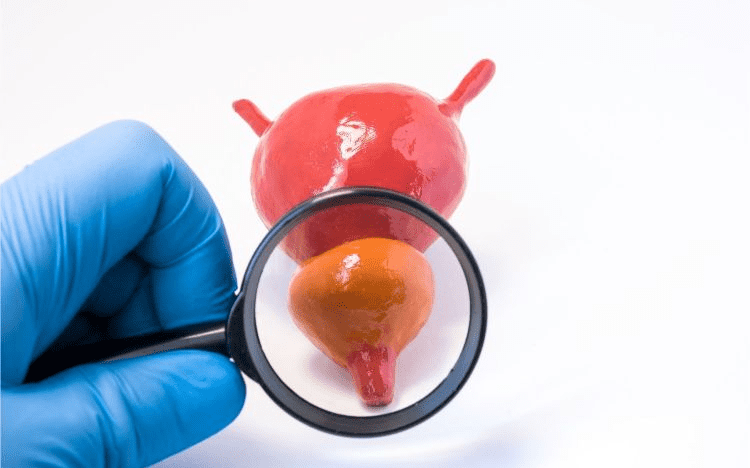First of all, if you’re worried, no, it’s not cancer. The word “prostatitis” means inflammation of the prostate. That is, it is swollen and irritated.
Many people confuse BPH (benign prostate hyperplasia) with prostatitis.
BPH can be treated, but not cured, but prostatitis can be cured in many patients. Patients with prostatitis have an infection, but in BPH it is not an infection.
PROSTATITIS
SYMPTOMS OF PROSTATITIS
• Pain in the lower back, lower abdomen, penis, or scrotum.
• Pain in the perineum (the area between the scrotum and the rectum).
• Pain or burning with urination.
• Needing to urinate more often or more urgently than usual.
• need to urinate more at night than usual.
• Changes in your urine stream: a weak stream, starting and stopping, etc.
• Blood in the urine.
• painful ejaculation.
• Nausea and vomiting.
• Flu-like symptoms – fevers, chills, and body aches.
CAUSES OF PROSTATITIS
There are several types of prostatitis, and the causes can vary. You won’t be able to find a particular cause. It is one of the common urinary problems that men have under the age of 50.
Prostatitis can be acute or chronic. Acute cases come on suddenly and are usually caused by a bacterial infection. This type of prostatitis usually responds to antibiotics.
In chronic cases, the symptoms can come and go, or they can be constant. It’s often hard to find a cause for chronic prostatitis. It could be caused by an immune reaction to a urinary tract infection or inflammation from irritation of the pelvis and the muscles around the area of the prostate.
DIAGNOSIS OF PROSTATITIS
• Digital rectal exam: Your provider inserts a gloved, lubricated finger into the rectum to check the prostate gland for pain and swelling. This exam may include prostate massage to collect a sample of seminal fluid.
• Urinalysis: A urine analysis and urine culture check for bacteria and UTIs.
• Blood test: A blood test measures PSA, a protein made by the prostate gland. High levels may indicate prostatitis, BPH, or prostate cancer.
TREATMENTS OF PROSTATITIS
1. Antibiotics
2. Alpha blockers
3. Nonsteroidal anti-inflammatory medications
4. Supplements


